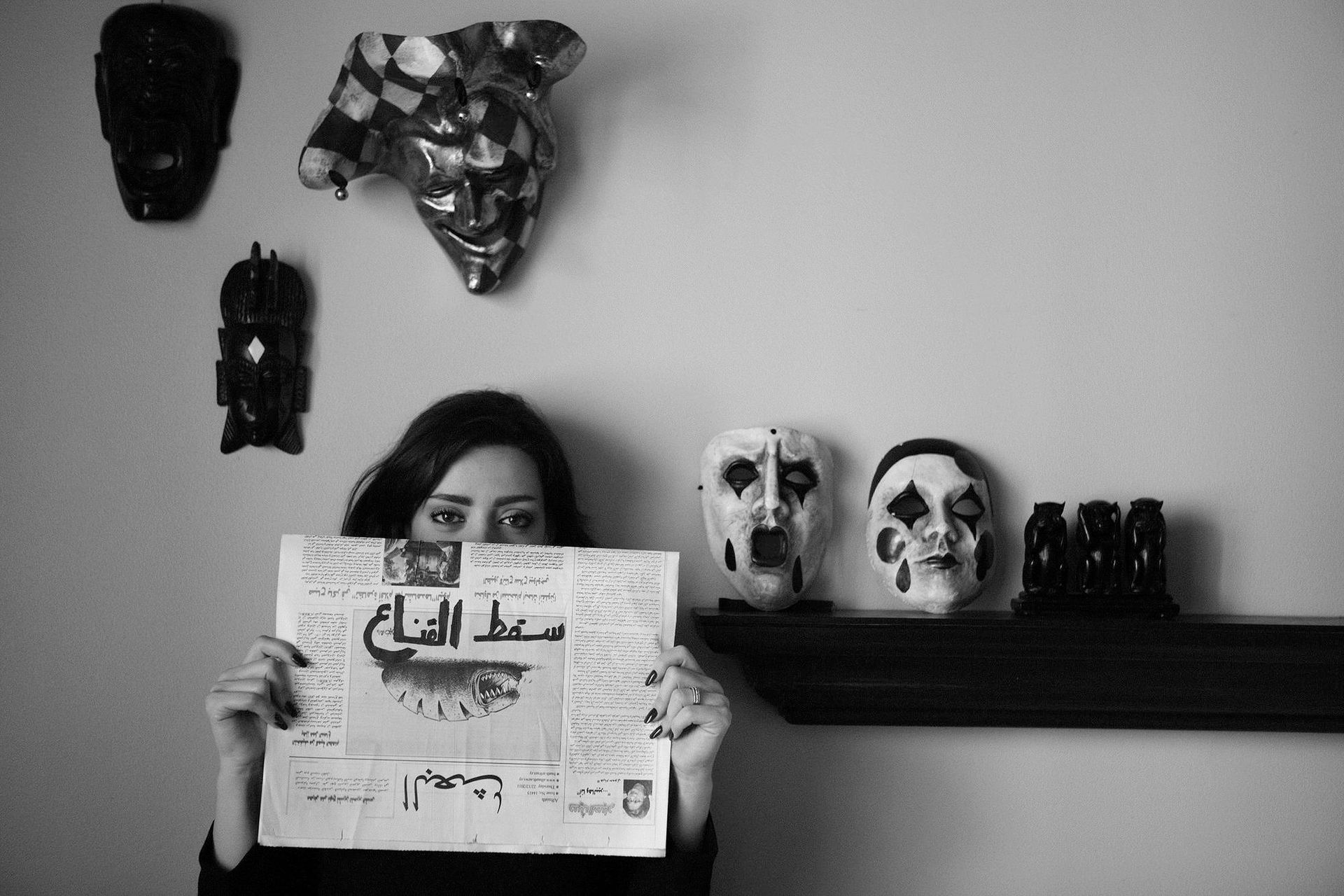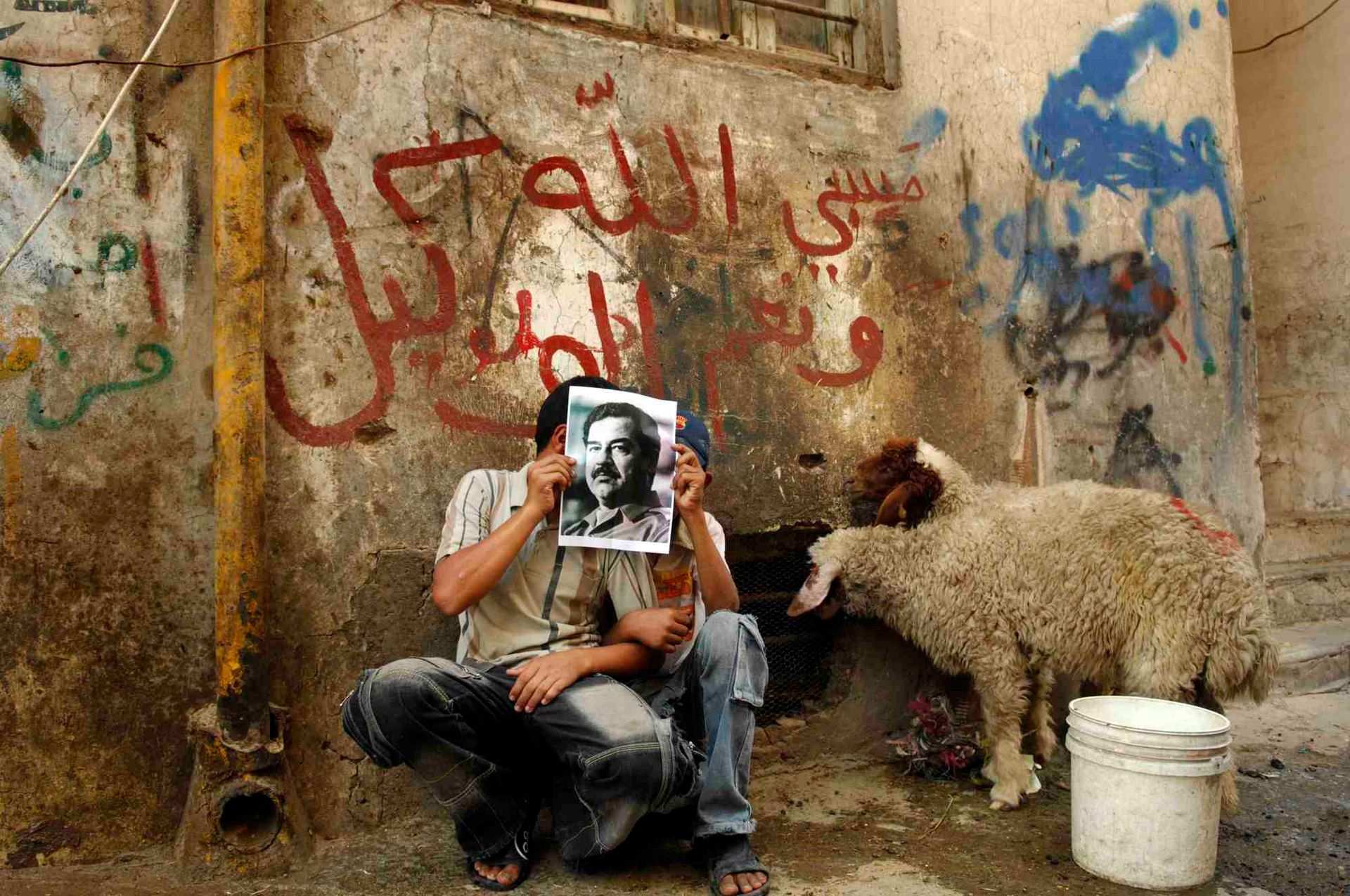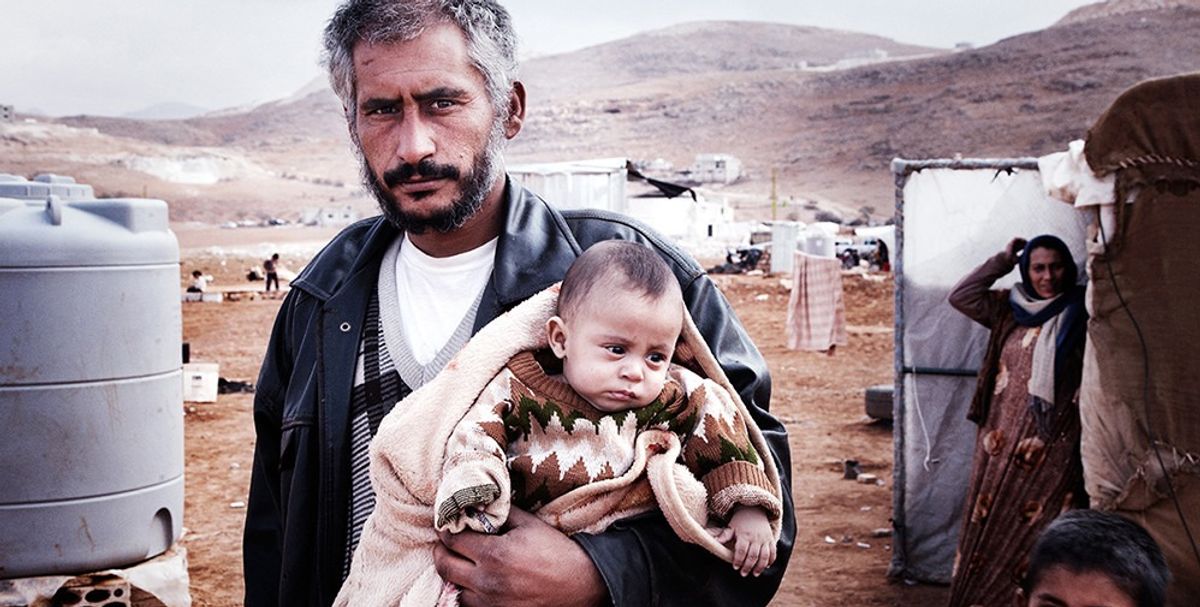The British Museum has acquired photographs by nine Middle Eastern artists tackling topics such as the fallout of the Syrian civil war and the tragic plight of refugees. The UK charity, The Art Fund, supported the acquisitions as part of an ongoing initiative launched in 2009 that facilitates collecting Middle Eastern photography at both the Victoria and Albert Museum and the British Museum.
The Syrian artist Jaber Al Azmeh asked Syrian individuals protesting against the civil war, such as journalists, students, doctors and film-makers, to write comments on upside-down copies of The Ba’ath Newspaper, a propaganda tool of the government, for his Resurrection series (2011-present).

“The portraits were made secretly, simply and quickly when I was still in Syria… and in a more creative [way] when I left the country,” the artist writes on his website. Two of the works—including Alma Entabli (journalist) ‘The mask has fallen’ (2012)—are on display at the British Museum in Living Histories: Recent Acquisitions of Works on Paper By Contemporary Arab Artists (until 22 October).
Polaroids taken by the Algerian artist Lydia Ourahmane show migrants sheltering in caves in Oran before making the treacherous crossing to Europe; the BM has acquired Fleeing will save us (2016). Images by Leila Alaoui, who died following a terrorist attack in Burkina Faso last year, focus on refugees crossing the border from Syria to Lebanon (Natreen, 2013). Meanwhile, the Tunisian photographers Nidhal Chamekh and Héla Ammar turn to events in Tunisia prior to the Arab Spring uprising of 2011.
Iraqi citizens hold photographs of Saddam Hussein over their faces in the series Saddam is Here (2010) by Jamal Penjwany, reminding viewers that the late dictator was still omnipresent years after his death. Works by two Iranian artists, Hengameh Golestan and Newsha Tavakolian, have also been acquired.

The Saudi artist Emy Kat has turned his lens on a property in Jeddah once owned by Harry St John “Abdullah” Philby, the maverick British civil servant and adviser to the Saudi royal family whose son Kim was an infamous Cold War spy (Philby No. 1 from the Everlasting Now series, 2015).
Hartwig Fischer, the director of the British Museum, says in a statement: “It is through collecting contemporary art like this that the British Museum’s collection will continue to reflect the history of the world for future generations.”


